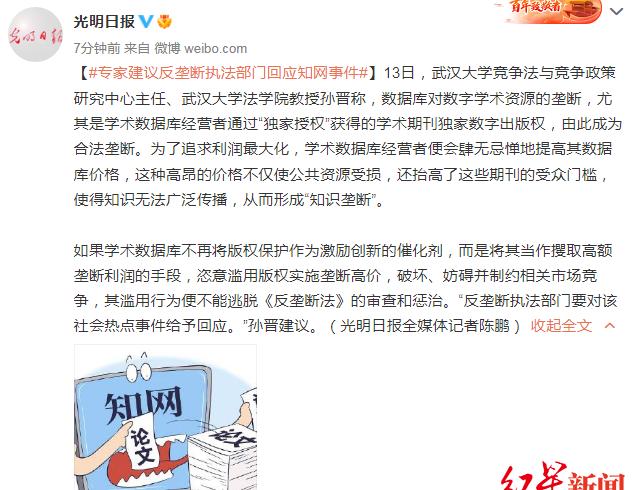On the 13th, Sun Jin, director of the Competition Law and Competition Policy Research Center of Wuhan University and professor of the Law School of Wuhan University, said that the monopoly of the database on digital academic resources, especially the exclusive digital publishing rights of academic journals obtained by academic database operators through "exclusive authorization", has thus become a legal monopoly. In pursuit of profit maximization, academic database operators will unscrupulously raise the price of their databases, which not only damages public resources, but also raises the audience threshold of these journals, making it impossible for knowledge to be widely disseminated, thus forming a "knowledge monopoly".
If academic databases no longer use copyright protection as a catalyst to stimulate innovation, but instead use it as a means to grab high monopoly profits, arbitrarily abuse copyright to implement monopoly high prices, undermine, hinder and restrict relevant market competition, and their abuse cannot escape the review and punishment of the Anti-Monopoly Law. "Anti-monopoly law enforcement departments should respond to this hot social incident." Sun Jin suggested. (Guangming Daily all-media reporter Chen Peng)
